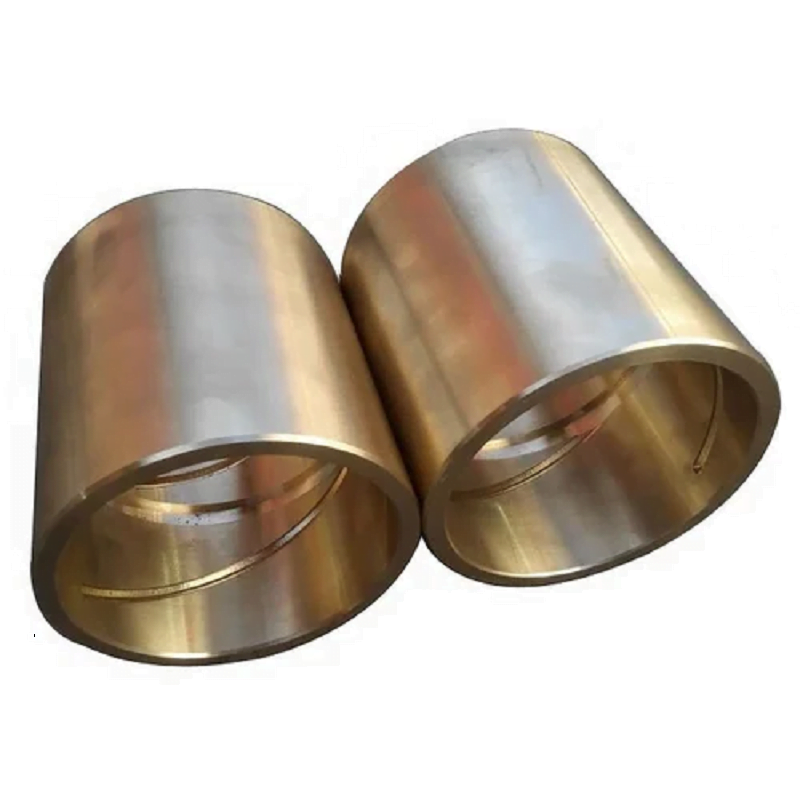
Selecting the right material for valves in seawater environments is crucial for ensuring long-term performance, reliability, and cost-effectiveness. Aluminum bronze has emerged as a popular choice for such applications due to its excellent corrosion resistance and mechanical properties. This guide will help you understand why aluminum bronze is often preferred and how to select the right grade for your specific needs.
Why Material Selection Matters in Seawater Environments
Seawater presents a highly corrosive environment due to its:
- Alto contenuto di cloruro
- Varying pH levels
- Presence of marine organisms
- Temperature fluctuations
Valves in seawater applications must withstand these challenges while maintaining their structural integrity and functionality. Poor material selection can lead to:
- Premature failure
- Frequent maintenance and replacement
- Increased operational costs
- Safety risks
Advantages of Aluminum Bronze in Seawater Applications
Aluminum bronze offers several advantages that make it suitable for seawater environments:
- Eccellente resistenza alla corrosione: Aluminum bronze forms a protective oxide layer that provides superior resistance to seawater corrosion.
- Molta forza: It maintains good mechanical properties even after long-term exposure to seawater.
- Resistenza al biofouling: Aluminum bronze has natural anti-fouling properties, reducing the growth of marine organisms.
- Good Wear Resistance: This property is crucial for valve components that experience frequent movement.
- Conduttività termica: Helps in applications where heat dissipation is important.
Common Aluminum Bronze Grades for Seawater Valves
Several aluminum bronze grades are suitable for seawater valve applications. Here’s a comparison of the most common grades:
| Grado | Composizione | Resistenza alla corrosione | Forza | Applicazioni tipiche |
|---|---|---|---|---|
| C95200 | Cu-Al-Fe | Bene | Moderare | General purpose valves |
| C95400 | Cu-Al-Fe-Ni | Molto bene | Alto | High-pressure valves |
| C95500 | Cu-Al-Fe-Ni-Mn | Eccellente | Molto alto | Critical components |
| C95800 | Cu-Al-Fe-Ni (Nickel-Aluminum Bronze) | Eccellente | Alto | Premium marine applications |
Factors to Consider When Selecting Aluminum Bronze for Seawater Valves
- Operating Pressure: Higher pressure applications may require grades with higher strength, such as C95400 or C95500.
- Temperatura: Consider the expected operating temperature range. Some grades perform better at elevated temperatures.
- Flow Characteristics: The valve’s role in controlling flow may influence the choice of grade based on wear resistance requirements.
- Seawater Composition: Variations in salinity or the presence of specific contaminants may affect the choice of grade.
- Mechanical Stress: Valves subject to high mechanical stress may benefit from higher-strength grades like C95500.
- Considerazioni sui costi: While C95800 offers premium performance, it comes at a higher cost. Balance performance needs with budget constraints.
Application-Specific Recommendations
To help you make an informed decision, here are some recommendations for specific seawater valve applications:
| Applicazione | Grado consigliato | Rationale |
|---|---|---|
| General seawater pumps | C95200 | Good overall performance at a reasonable cost |
| High-pressure seawater systems | C95400 | Higher strength for demanding conditions |
| Offshore oil & gas valves | C95500 | Excellent corrosion resistance and high strength for critical applications |
| Naval ship valves | C95800 | Premium performance for mission-critical systems |
| Desalination plant valves | C95400 or C95500 | Resistance to high salinity and potential chemical treatments |
Considerazioni di manutenzione
While aluminum bronze valves offer excellent corrosion resistance, proper maintenance is still crucial:
- Regular Inspections: Conduct visual inspections to check for signs of wear or corrosion.
- Pulizia: Remove any marine growth or deposits to maintain optimal performance.
- Cathodic Protection: In some cases, implementing cathodic protection can further enhance corrosion resistance.
- Spare Parts: Keep critical spare parts on hand, ensuring they are also made of appropriate aluminum bronze grades.
Conclusione
Selecting the right aluminum bronze grade for seawater valves is crucial for ensuring long-term performance and reliability. By considering factors such as operating conditions, specific application requirements, and cost constraints, you can choose the most appropriate grade for your needs.
C95200 offers good general-purpose performance, while C95400 and C95500 provide enhanced strength and corrosion resistance for more demanding applications. For the most critical or high-performance needs, C95800 (nickel-aluminum bronze) offers premium characteristics.
Remember that material selection is just one aspect of ensuring valve reliability in seawater environments. Proper design, installation, and maintenance practices are equally important for maximizing the service life of your valves.
When in doubt, consult with materials experts or valve manufacturers who have experience with seawater applications. They can provide valuable insights and help you make the best choice for your specific needs, ensuring that your seawater valves perform reliably for years to come.
